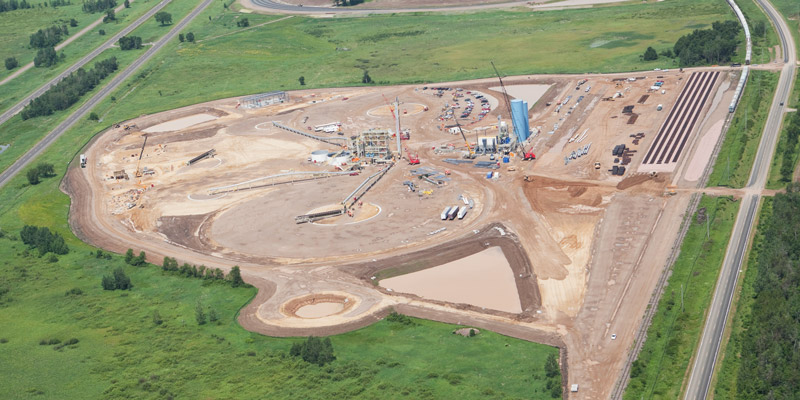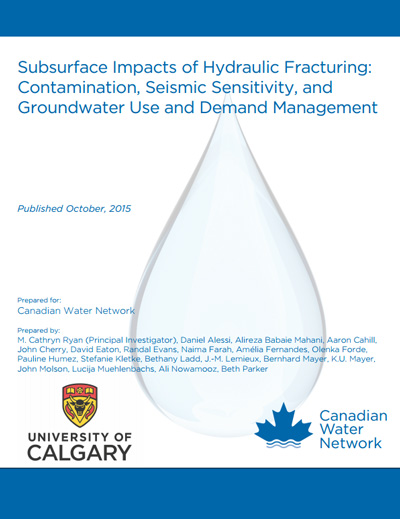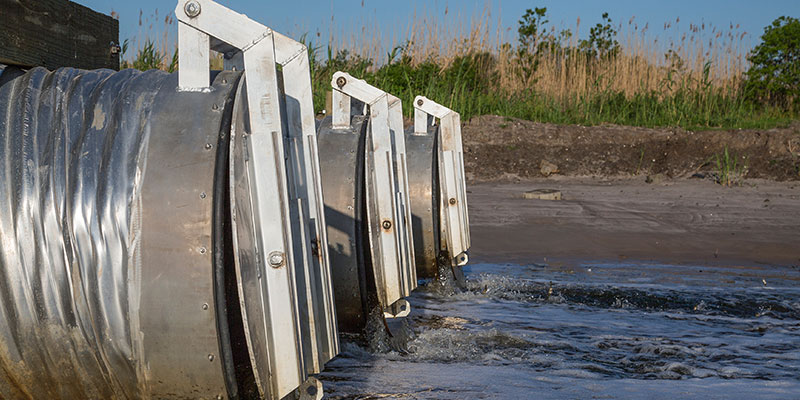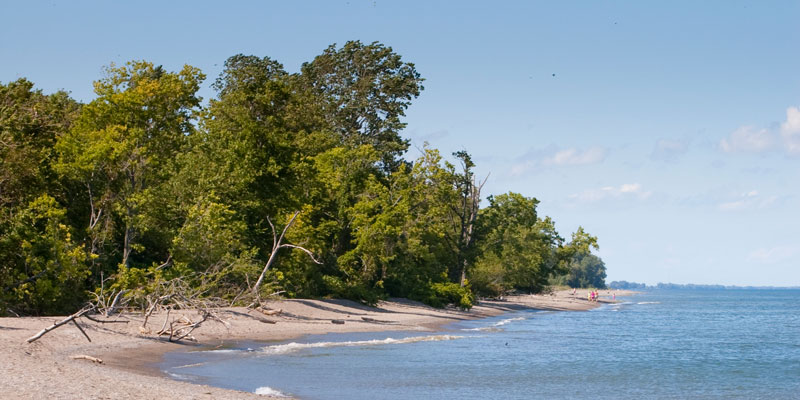Subsurface impacts of hydraulic fracturing: Contamination, seismic sensitivity, and groundwater use and demand management
M. Cathryn Ryan, Professor, University of Calgary (2014-2015)

Challenge
Over 10 million Canadians depend directly on groundwater for their drinking water supply. However, groundwater is increasingly threatened by issues of over-exploitation and contamination. Developing effective protection strategies for this precious resource is critical to the economy, the environment and public health and requires informed research on potential impacts to sub-surface water resources. In particular, hydraulic fracturing, an activity which has increased dramatically in recent years, has the potential to significantly impact subsurface and groundwater resources, yet remains an area of much ambiguity. This project was designed to evaluate perceived knowledge gaps of potential hydraulic fracturing impacts on groundwater resources and to analyze available research methods to address these gaps in relation to decision-making in a Canadian context.
Project
The researchers divided into specialized teams focused on specific sub-disciplines of hydrogeology and groundwater science. The teams performed comprehensive literature reviews to fully assess current state-of-the-art of research before generating individual reports which were eventually combined to form a standalone literature review document. The results from this report were presented and discussed at two-day workshop with key shale gas development decision-makers. After the workshop, a second report was generated by each team summarizing all aspects of groundwater science requiring research and an assessment of potential research approaches including advantages and disadvantages. Both reports were combined to produce the final CWN-knowledge integration report, which was presented at a second workshop to discuss the findings and outcomes of the project.
Outputs
- Workshops 1 & 2: Following the completion of the comprehensive groundwater literature review report, a two-day workshop was held to bring the project team together with key shale gas development decision-makers to present results and discuss the findings of the literature review. Following finalization of the final knowledge integration report, a two day close-out workshop was held to discuss the findings and outcomes of the project.
- Knowledge integration report: A comprehensive literature review to fully assess the current state-of-the-art of research regarding potential hydraulic fracturing impacts on groundwater resources, summarizing all aspects of groundwater science requiring research and an assessment of potential research approaches including advantages and disadvantages.
Outcomes
- Identification of key knowledge gaps relating to groundwater identified as priorities for decision makers
- Summary of practical research approaches that could be used to address the priority knowledge gaps, including a discussion of potential strengths and weaknesses in a Canadian context
- Summary of current research approaches and knowledge relevant to groundwater





